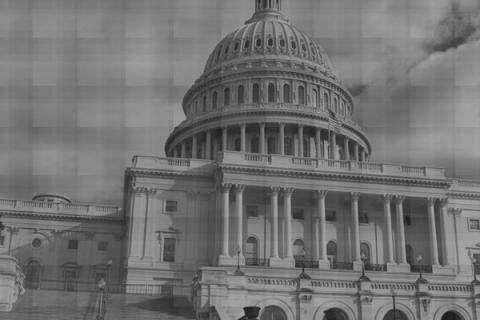Governor Jerry Brown has upwards of 600 bills to consider before the October 9th deadline for approval of all legislation passed last session, and he insists he'll continue to use his veto pen with gusto. Not only has the amount of legislation struck down by the Governor been surprising to some spectators, even more intriguing has been the independent (some might say 'assertively moderate') political course he's plotting with his “vetomania”.
In fact, if one were not shown the signature on a good many of the veto messages issued in the past couple of weeks, you'd think there was an old-guard conservative running the state's highest office. Maybe Ron Paul was right when he repeatedly quipped during his 2008 presidential campaign that the skyrocketing national debt will make fiscal conservatives out of all of us here and soon.
And that has been Brown since his June decision to veto the majority vote budget approved by legislative Democrats – ever mindful of California's humbling budget deficit. Take, for example, Brown's admonishment of Senator Leland Yee's (D-San Francisco) SB 88, a measure approved by both houses which would impose new rules governing name transliterations on ballots. Brown, in his veto message emphasized that:
“With California's severe fiscal challenges, restraint must be exercised with regard to any new state mandate.”
Any such rules concerning the appearance of names on ballots should be established at the local level and based solely on local need, says the governor. Calling on the same fiscal-restraint logic, Brown says that checking the status on vote-by-mail ballots should also be a local program. Many counties already perform this service, he pointed out when returning AB 293 to the Assembly, sans his signature.
In times gone by, the redundancy of a law hasn't stopped the Golden State from layering mandates, but not on Brown's watch. When presented with a law to amend the Education Code, forcing school districts of choice to give attendance priority to students who meet special criteria, Brown notified the state Senate that “current law already contains appropriate safeguards” and that he sees no evidence to suggest that a problem even exists that would warrant a statewide directive such as that stipulated in SB 745.
Similarly, Yee's other gem, the 'Civil rights: language restrictions' bill (SB 111) was met with disapproval over its superfluity. The governor vetoed it to prevent costly litigation for businesses that “run afoul of this measure without any malice or bad intent.”
At times, Brown's rejoinders read like excerpts from a dissertation on political philosophy, one emanating from the heart of a minarchist libertarian rather than a liberal. When vetoing SB 105 (another by Yee), Brown wrote:
"While I appreciate the value of wearing a ski helmet, I am concerned about the continuing and seemingly inexorable transfer of authority from parents to the state."
The bill seeks to impose a $25 fine on kids who are caught skiing or snowboarding without a protective helmet. Brown's veto message had this erudite addition:
“Not every human problem deserves a law. I believe parents have the ability and responsibility to make good choices for their children.”
On more than one occasion Brown spoke wisdom to the age-old question of what is the proper deterrent for a victimless crime. Ratcheting up fines on those who drive while using a cell phone won't help deter the infraction, which is penalized enough for “people of ordinary means,” he wrote in his veto message to SB 28.
SB 448 by state Sen. Mark DeSaulnier (D-Concord) would require paid workers who gather ballot initiative signatures to wear an identifying button. When striking down that bill, Brown wrote:
“If it is acceptable to force paid signature gatherers to place identifying badges on their chests, will similar requirements soon be placed on paid campaign workers? I choose not to go down this slippery slope where the state decides what citizens must wear when petitioning their government.”
Brown rejected only one Republican-authored law that came on the last leg of the legislative session. The reason Brown returned Assembly member Martin Garrick's (R-Carlsbad) AB 274 without a signature was, ironically enough, that the measure would add one bureaucratic step too many in the Unemployment Insurance claim notification process.
Believe it or not, the list of daring statements goes on. It remains to be seen if this right-of-center prose is simply part of a political strategem or the product of a genuine belief in the need for fiscal austerity. Either way, Brown is proving that by acting as an Independent, he can elegantly speak truth to power -- the unavoidable truth that is framed by dollar signs and red ink.

